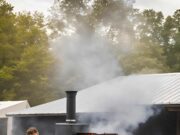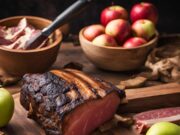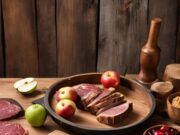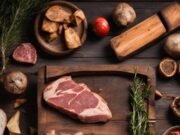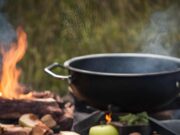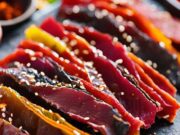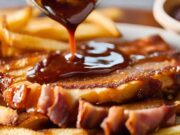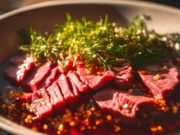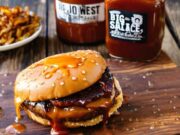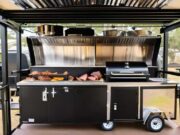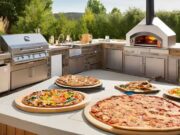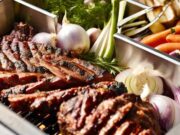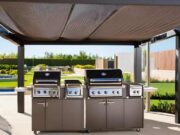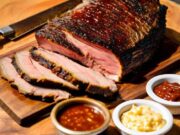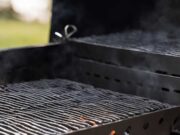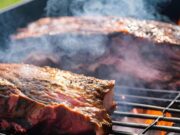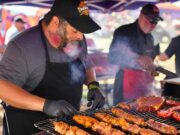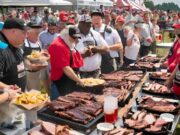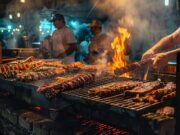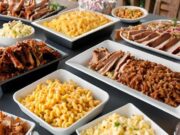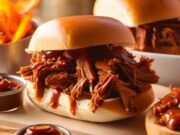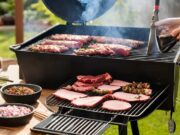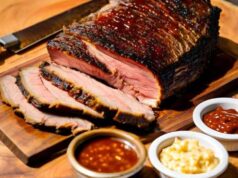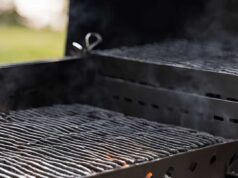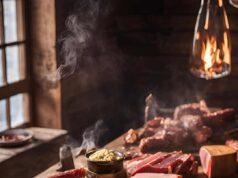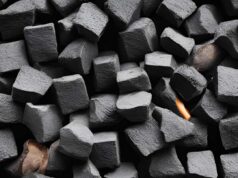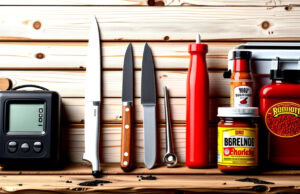Barbecue vs Grill: A Detailed Comparison
Barbecue vs grill – it’s a flavorful debate that’s been sizzling among food lovers for years. You might think they’re the same, but there are key differences in cooking techniques, heat sources, and final taste. Whether you’re a fan of slow-cooked, smoky barbecue or a quick, seared grill, understanding these differences can elevate your outdoor cooking experience. So, let’s break out the wood pellets for the Traeger, turn on the Weber gas grill, and dive deep into the world of live fire cooking. In this article, we’ll dissect the barbecue and grill, comparing everything from heat control to the best way to use barbecue sauce. Let’s fire up the discussion on this hot topic and grill down to the juicy details!
Key Takeaways
- Barbecue and grilling are two distinct cooking methods, with the former involving slow cooking over low heat, and the latter focusing on fast cooking over high heat.
- The heat source plays a significant role in both BBQ and grilling. For example, gas grills offer quick heat-up times and easy control, while pellet grills impart a distinct, smoky flavour to the food.
- The rise of wood pellet grills, such as Traeger grills, offers a unique combination of the convenience of a gas grill and the flavour of a barbecue.
- Enhancing your cooking experience with BBQ and grilling can involve experimenting with heat control and different ways of using barbecue sauce.
- The future of BBQ and grilling is moving towards smart grills that offer advanced features for precision cooking.
The Fundamentals: What is Barbecue?
When it comes to outdoor cooking, the terms barbecue and grill are often thrown around interchangeably. But are they really the same thing? Not exactly, let’s see why.
Grilling refers to a quick high-heat cooking method, usually on a gas grill or a pellet grill, such as a Traeger. The heat source is directly below the food, making it perfect for steaks or burgers. Traeger grills Ironwood, a smart grill, are a prime example of this.
On the other hand, barbecue embodies a slower cooking process, involving roasting over low heat. This method, known as live fire cooking, often uses a wood pellet grill for its heat source. The heat comes from burning pellets, like those in a Traeger, and the food is cooked through indirect heat.
This difference in heat source between grilling and barbecue gives each method its distinct flavour. Grilling often results in a caramelised, smoky exterior, whereas barbecuing imparts a deep, rich smoky flavour throughout the food.
Remember, when barbecuing, it’s best to add barbecue sauce near the end of cooking to prevent it from burning. Listen to a bbq tips podcast for more bbq key takeaways.
In short, whether you’re grilling or barbecuing, each offers a unique experience and flavour profile. So, next time you fire up your gas or pellet grill, consider the difference and choose the best method for your meal.
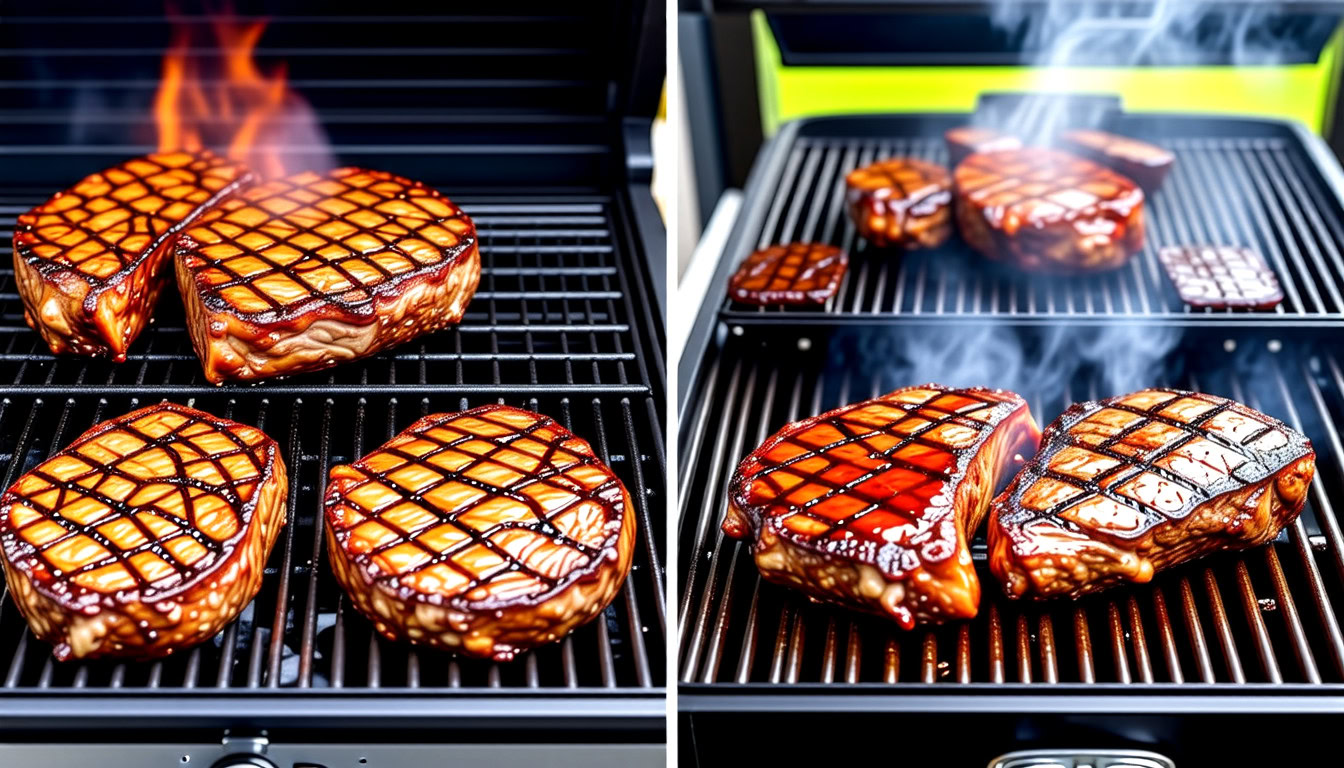
Characteristics of a True Barbecue
Understanding the distinction between barbecue and grill can truly elevate your cooking skills. In essence, the key differences lie in the heat source and cooking method. A grill typically involves high-heat, direct cooking, perfect for searing steaks or cooking burgers.
On the other hand, barbecue involves a lower heat source and a longer cooking time. This method is typically used for slow-cooking larger cuts of meat in a pellet grill, such as a Traeger, allowing the flavours to develop fully.
A gas grill often represents the ‘grilling’ side of the spectrum, while a pellet grill leans more toward ‘barbecue’. The heat source, be it gas or pellet, plays a significant role in the cooking style.
| Grill | Barbecue | Heat Source | |
|---|---|---|---|
| Steak | Yes | No | High |
| Burgers | Yes | No | High |
| Large cuts | No | Yes | Low |
| Gas Grill | Yes | No | Gas |
| Pellet Grill | No | Yes | Pellet |
Remember, adding barbecue sauce towards the end of the cooking process can avoid burning on a grill due to the high heat. Finally, the choice between grilling and barbecuing depends on your personal preference, the food you’re cooking, and the flavours you’re aiming to achieve.
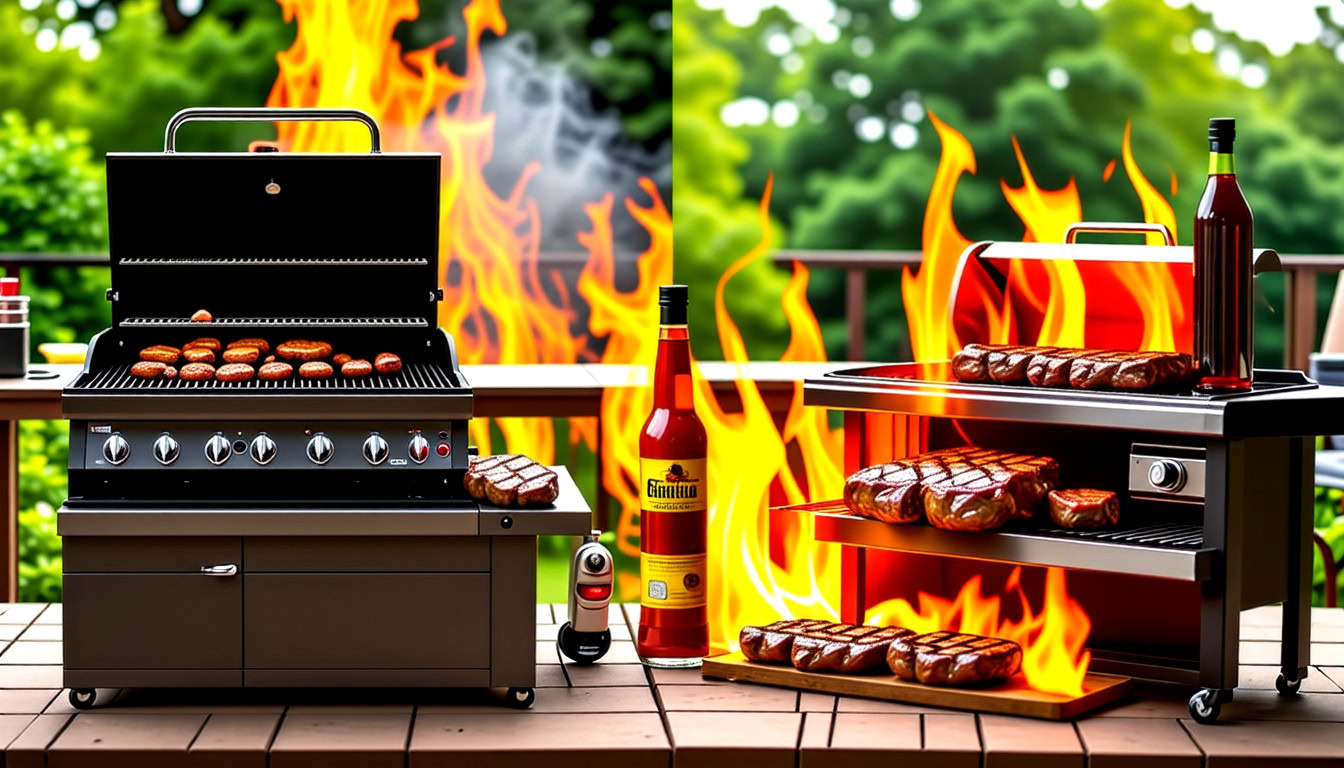
The Basics: What is Grilling?
Let’s dive straight into the barbecue vs grill debate. Simply put, grilling involves cooking food fast and hot, directly over high heat. Think of those juicy burgers at your backyard party. Barbecue, on the other hand, is all about slow and low. It’s more of a marathon, taking hours to cook large cuts of meat at lower temperatures.
The tools of the trade differ as well. For grilling, a gas grill or a pellet grill like a Traeger will do the trick. Barbecuing often employs a wood pellet grill or a smoker.
Now, here’s an interesting nugget: live fire cooking. It’s an age-old technique that blends the lines between grilling and barbecuing. Live fire involves cooking over an open flame, adding a distinct smoky flavor.
In the end, whether you’re a grill master or a barbecue aficionado, both methods offer their own unique charm and flavour. It’s not a competition, but a celebration of cooking outdoors. So, fire up the grill or smoker, get those bbq key takeaways from your favourite bbq tips podcast, and let the good times roll. Happy grilling or barbecuing, folks!
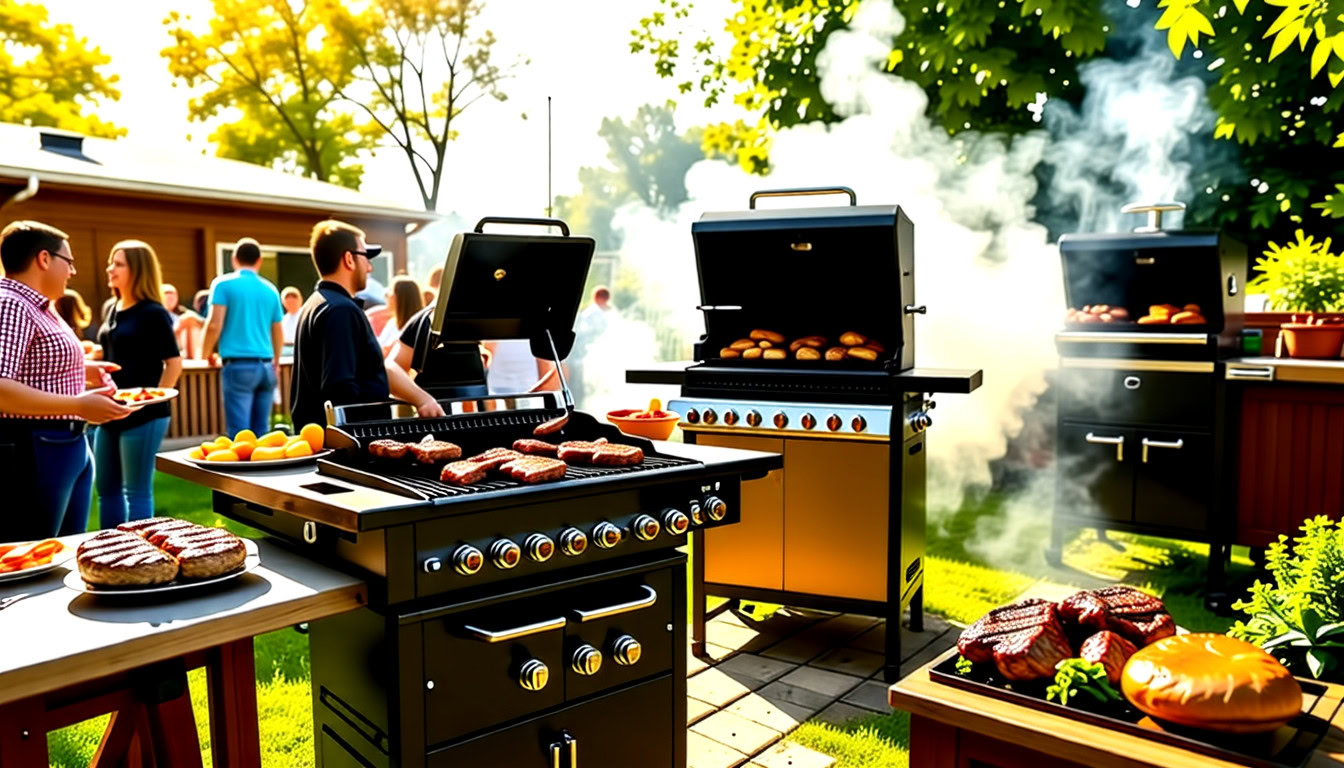
Unique Features of Grilling
When having a discussion around grill versus bbq, one cannot overlook the key disparities. The gas grill presents a controlled environment, excellent for roasting. It is a game of precision. If you like your steak just right, this is your best bet.
On the flip side, the pellet grill, with brands like Traeger leading the pack, is a maestro of smoke-infused flavors. Using pellet as fuel, it’s ideal for live fire cooking, offering a unique twist to your meals.
A main point of divergence is the heat. With a gas grill, you have a steady, predictable heat source. The pellet grill, however, is an unpredictable beast, with heat fluctuating based on pellet quantity and atmospheric conditions.
Another difference to consider is the added barbecue sauce. A gas grill is more forgiving, allowing for sauce application at any time. A pellet grill, on the other hand, demands caution. Add sauce too early, and you risk it burning due to the intense, variable heat.
That said, for those seeking a modern twist, they might consider a smart grill. This innovative appliance combines the best of both worlds, with precision heat controls and smoke infusion options.
So, is it BBQ or grilling? The difference boils down to your personal preference and cooking style. Whether it’s the controlled environment of a gas grill or the smoky charm of a Traeger pellet grill, each has its own allure. A few BBQ tips to remember: always monitor your heat and know when to add your barbecue sauce. Happy grilling!
BBQ vs Grill: The 4 Key Differences
The barbecue vs grill debate is a fiery one, but knowing the key differences can help you choose the right method for your cookout. First off, BBQ is a slower, indirect heat method, perfect for larger cuts of meat. It’s all about roasting by the heat of smoky coals or, in the case of a pellet grill, by compressed wood pellets. Brands like Traeger are popular for this style of outdoor cooking.
In contrast, grilling is a quick, direct heat method, ideal for small cuts like steak or burgers. Gas grills and smart grills use propane or natural gas, providing the benefits of easy temperature control and clean-up.
Adding barbecue sauce during the final stages of BBQ, not grilling, is another key difference. Lastly, the unique flavours each method imparts are worth noting. BBQ imparts a smoky taste, while grilling gives a charred, seared flavour. Now you’re ready to take on any cookout challenge, whether it’s live fire cooking or grilling.
The Role of Heat Source in BBQ and Grilling
The essence of BBQ and grilling lies in the heat source. Two popular methods, the gas grill and pellet grill, offer different experiences. The gas method uses propane or natural gas, providing quick and efficient heat. The pellet method, such as the popular Traeger, utilises hardwood pellet for a slow and smoky effect.
In live fire cooking, the difference is distinct. Gas gives you control, great for roasting. On the other hand, pellet grills, with their steady heat, are ideal for BBQ. Adding barbecue sauce at the right time can make a world of difference to your dish.
But, there’s a new player in town, the smart grill. This cutting-edge technology allows for precise temperature control, making it a great bridge between traditional BBQ and grilling. However, each method has its own charm and neither is superior. It’s all about personal preference.
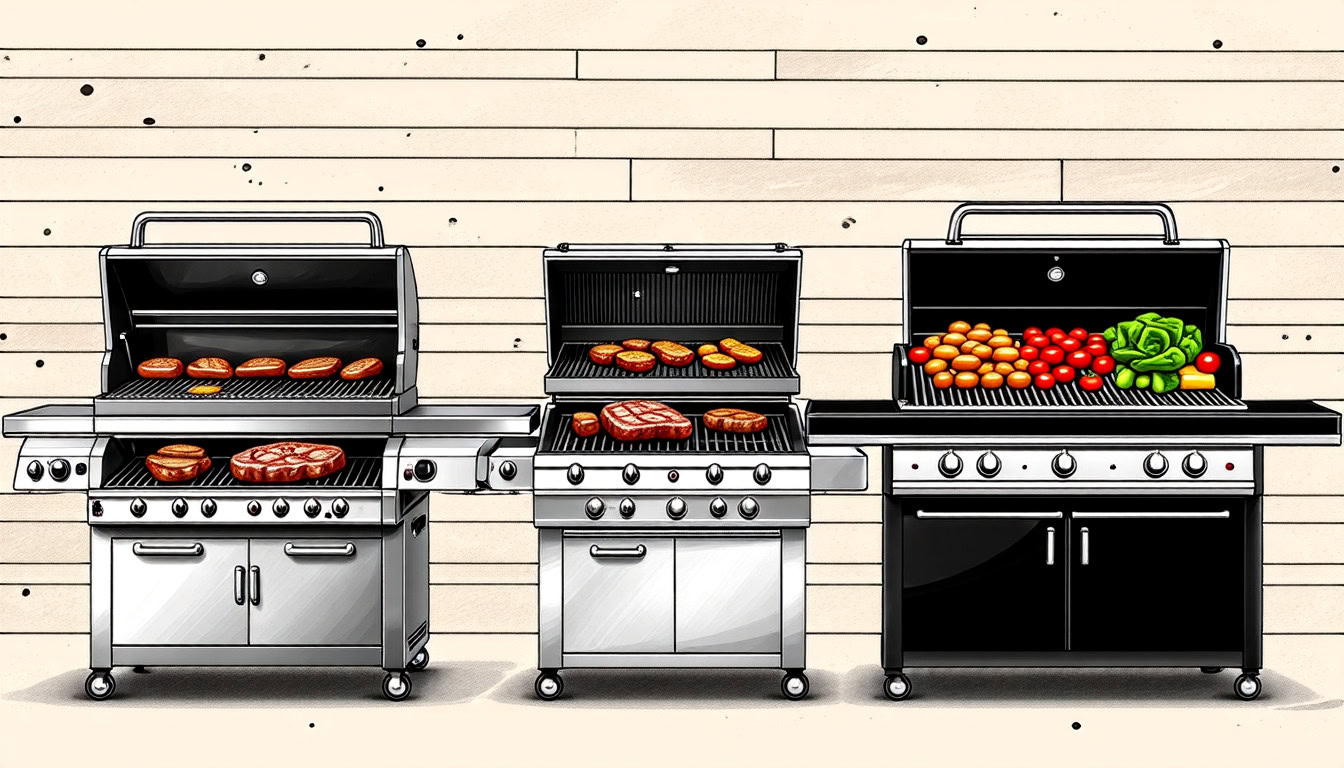
Gas Grill vs Pellet Grill: A Comparative Study
Choosing between a gas grill and a pellet grill for your next outdoor gathering? Let’s break it down for you.
Gas grills are known for their quick heat-up times and easy adjustability for temperature control, making them great for those unpredictable bbq moments. On the other hand, pellet grills, often associated with brands like Traeger, are revered for their consistent heat and ability to integrate smoky flavours into your meals.
Now, you may be wondering, “What’s the difference?” Well, it’s the fuel source. Gas grills use, well, gas, while pellet grills use compressed wood or pellet for fuel. This significantly impacts the flavour and cooking method.
| Gas Grill | Pellet Grill | |
|---|---|---|
| Heat-up time | Quick | Slower |
| Temperature control | Easy | Moderate |
| Flavour | Neutral | Smoky |
| Method | Direct grilling | Roasting & smoking |
| Fuel | Gas | Pellet |
Remember to add barbecue sauce during the last few minutes of grilling, regardless of your grill type, for an extra kick of flavour. Happy live fire cooking!
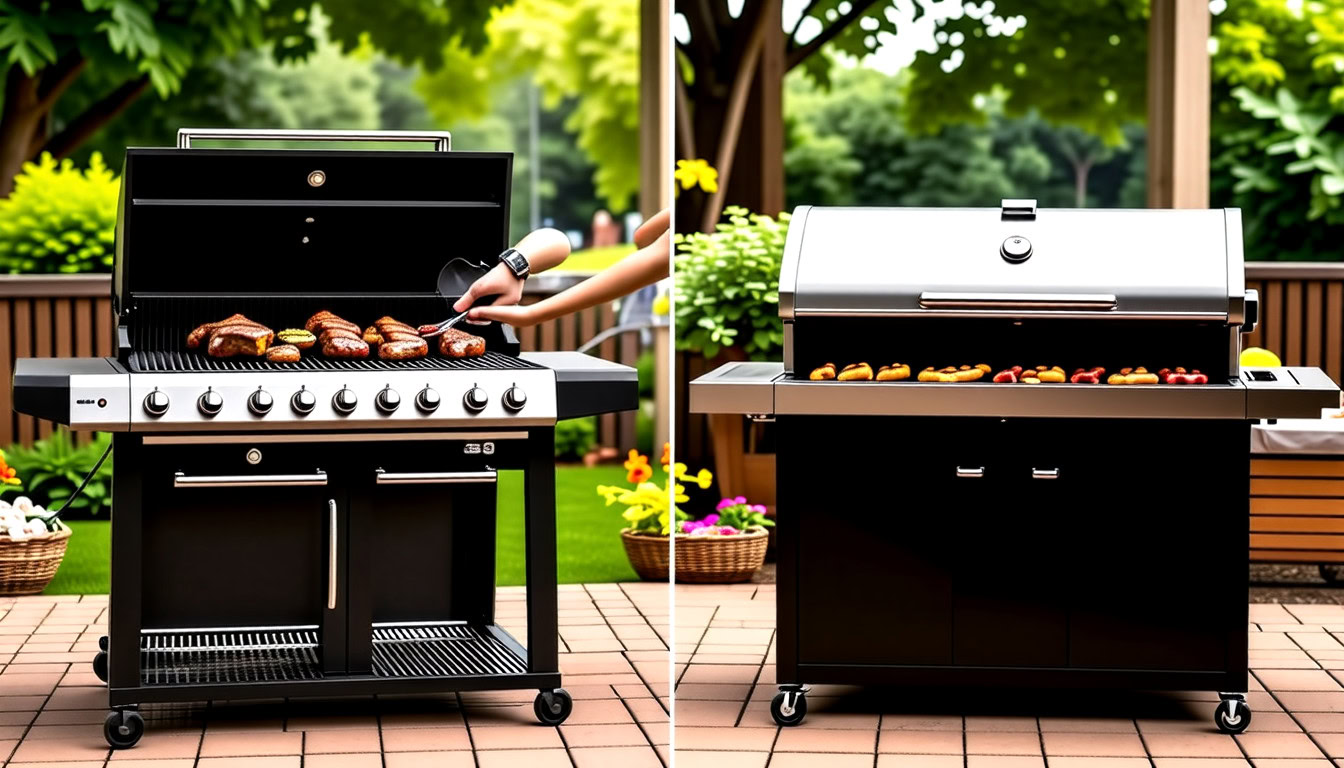
Delving Deeper: The Rise of Wood Pellet Grills
In the world of outdoor live fire cooking, a new player is gaining popularity – the pellet grill. Unlike traditional gas grills, these units utilise compressed wood pellets as a heat source. One of the most well-known brands in this space is Traeger. Their innovative technology allows for precise temperature control, making them an attractive option for those who enjoy roasting and other cooking styles beyond classic barbecuing.
So, what’s the main difference between gas and pellet grills? The answer lies primarily in the fuel source. Gas grills, like the Weber brand, utilise propane or natural gas, while pellet grills use small wood pellets. This not only impacts the heat control but also the flavour of your food.
With pellet grills, you can add barbecue sauce towards the end of the cooking process to enhance the smoky flavour. In the end, the choice between a gas or pellet grill depends on your personal preference for convenience versus flavour. Choose wisely, and enjoy your outdoor cooking experience!
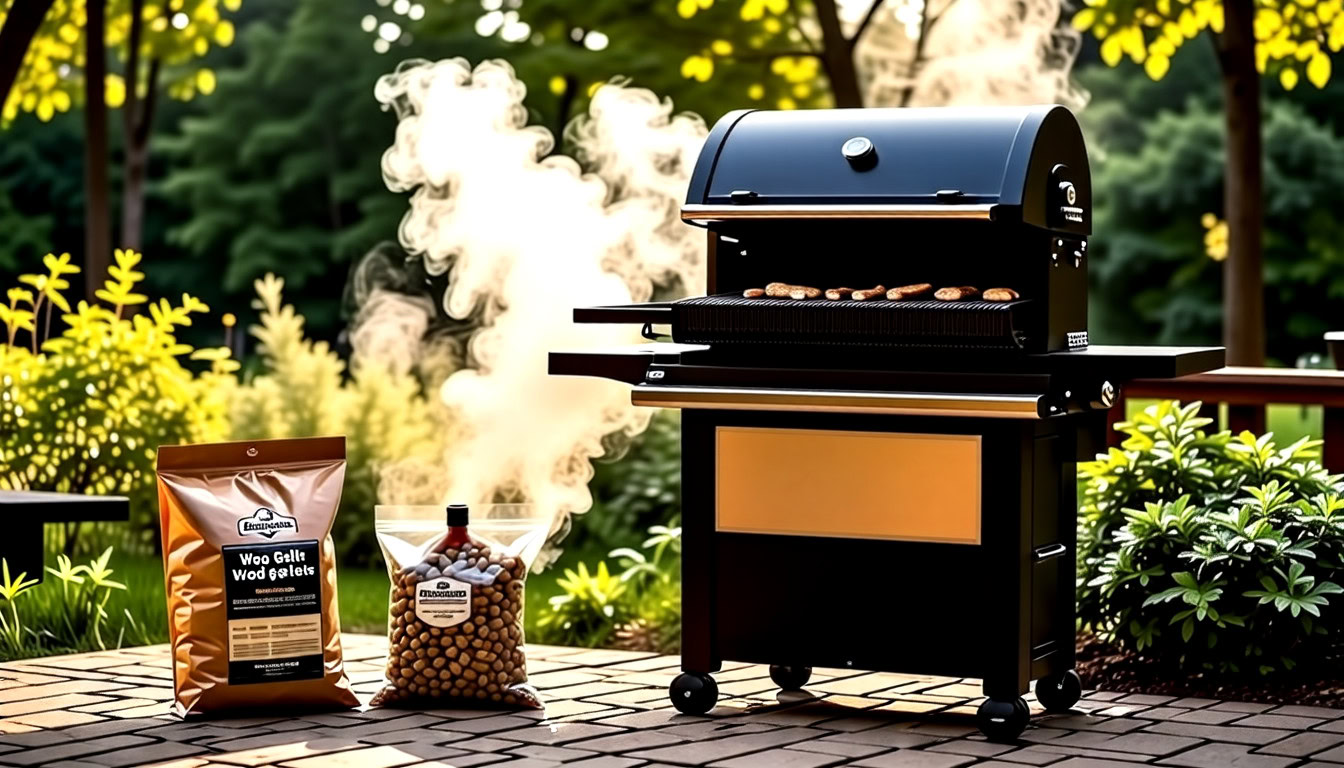
BBQ and Grilling Tips: Enhancing Your Cooking Experience
When it comes to outdoor feasting, two names often come to mind: barbecue and grill. If you’ve ever wondered about the difference, you’re not alone. Barbecuing involves slow cooking over low heat, typically using indirect heat sources. Picture yourself roasting a succulent rack of ribs for hours, allowing the smoky flavour to seep in.
On the flip side, grilling involves quick cooking over an open flame. Got some juicy steaks? A gas grill is your best bet for a meal that’s ready in minutes. If you’re a fan of the Traeger brand, they offer a unique option: a pellet smoker-grill combo. This allows you to enjoy the best of both worlds; grilling for speed and barbecuing for that slow-cooked, smoky flavour.
Whether you’re an avid barbecue enthusiast, a grilling guru, or a curious beginner, understanding the difference between barbecue and grill can truly enhance your outdoor cooking experience. So go ahead, light that live fire and let the feast begin!
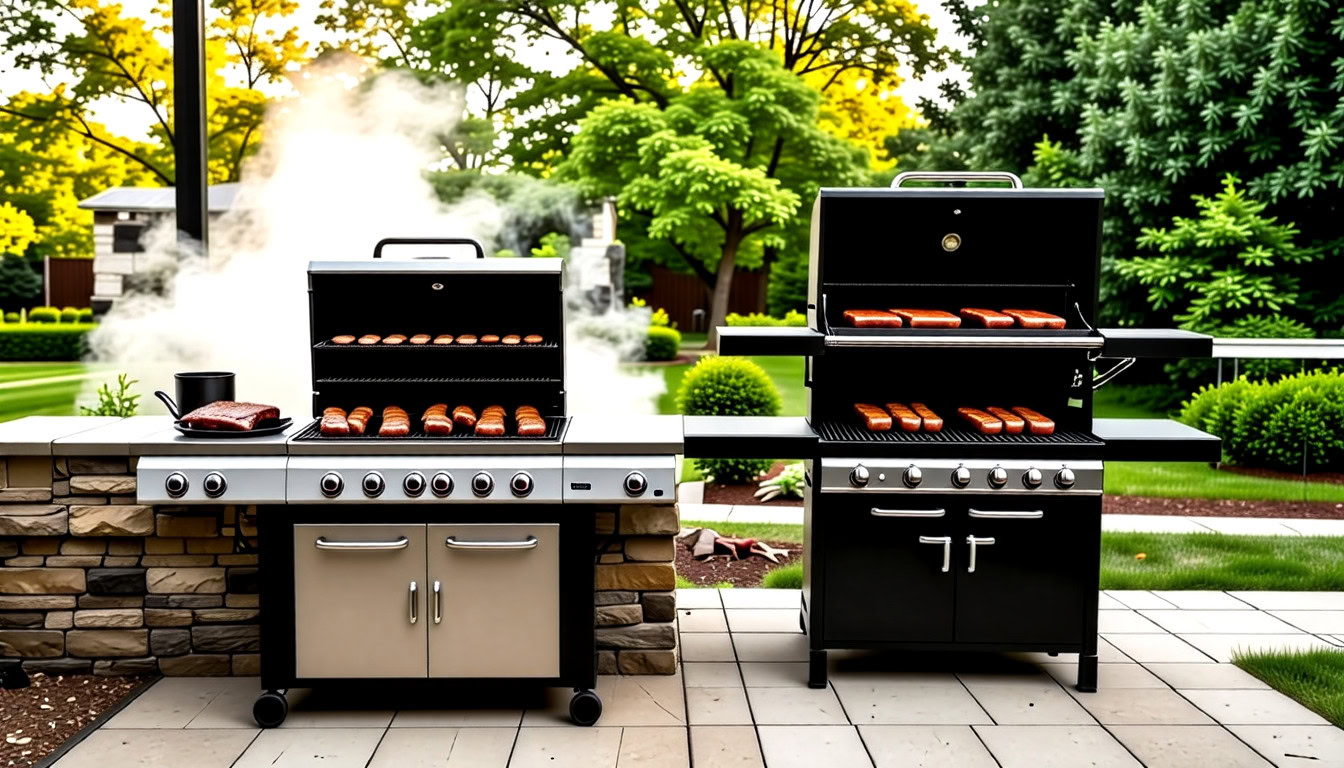
5 Must-Try Recipes for BBQ and Grill Lovers
For those who love the tantalising aroma of roasting meats and veggies, the debate between barbecue and grill is a heated one.
Both methods offer distinct flavours and experiences, but what sets them apart? Barbecue involves slow cooking over low, indirect heat. The food is usually prepared in a closed setting, allowing it to absorb the smoke and become tender.
On the other hand, grilling is fast and furious. It’s done over high heat, typically on an open gas grill or a Traeger for a seared, smoky finish.
The fuel used also plays a significant role. Pellets lend a unique flavour to the food in barbecue while live fire imparts a distinct charred taste.
Here’s a simple comparison:
- Barbecue: Slow, low-heat, indirect cooking.
- Grill: Fast, high-heat, direct cooking.
- Barbecue: Closed setting, tender meat.
- Grill: Open setting, seared finish.
- Barbecue: Pellets as fuel.
- Grill: Live fire as fuel.
So, next time you’re planning a cookout, remember, it’s not just about the food, but also the cooking method you choose.
The Future of BBQ and Grilling: The Advent of Smart Grills
When you think of cooking outdoors, two terms often come to mind: barbecue and grill. But, what sets them apart? Let’s delve into the nitty-gritty.
Barbecuing is a slow, low-temperature method, using indirect heat. The food, often large cuts of meat, is cooked by the heat circulating around it, much like in an oven. The heat is typically provided by charcoal or wood pellets, lending a smoky flavour that’s the trademark of barbecued food. A good example is the Traeger pellet smoker, popular for its temperature precision and smoky aroma.
Meanwhile, grilling is cooking over direct heat, usually at high temperatures. It’s quicker than barbecuing and perfect for smaller cuts of meat. One example here is a gas grill, known for its convenience and control.
In a nutshell, whether it’s the slow and steady barbecue or the quick and fiery grill, the choice depends on your personal preference and what you’re cooking.
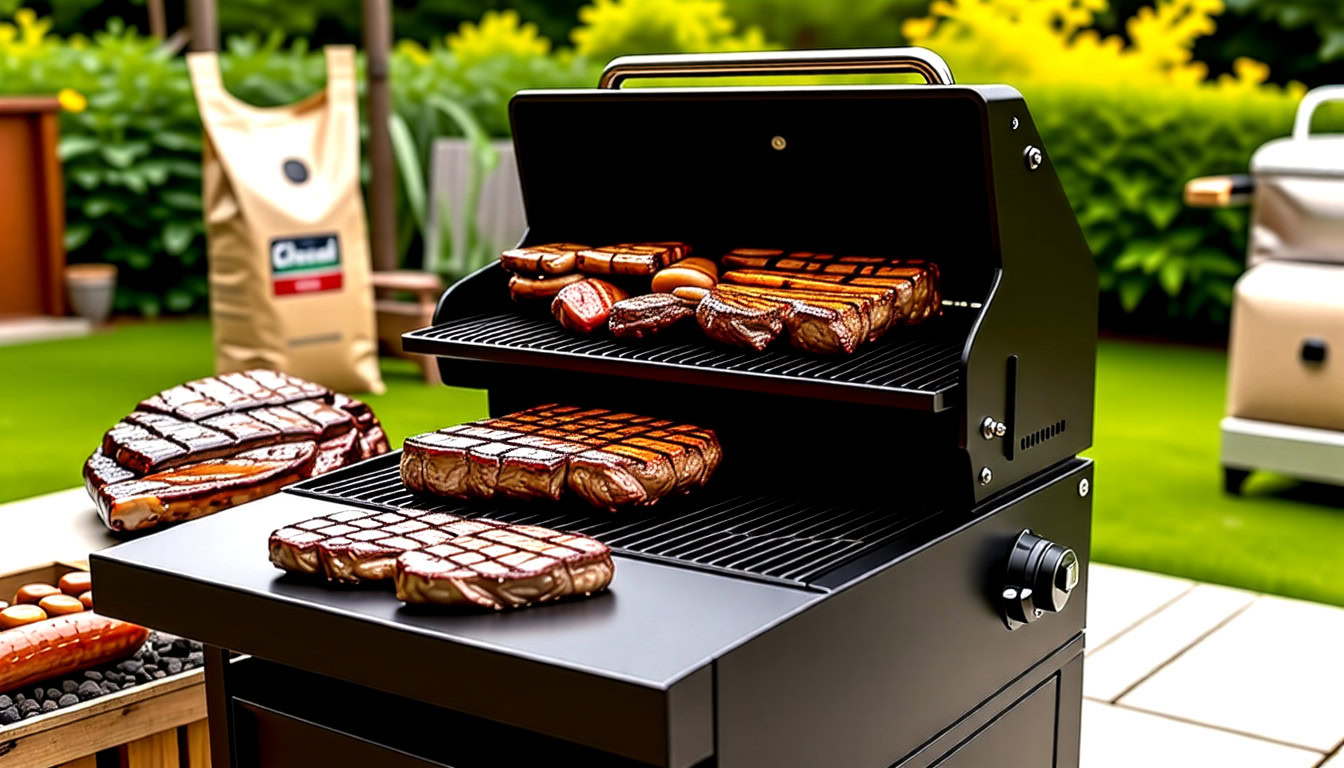
Conclusion
So, we’ve taken a grand tour through the mouth-watering world of BBQ and grilling, diving into the nuances, different techniques, and unique attributes of each. We’ve even explored the exciting future of these beloved cooking methods with the rise of smart grills. No matter which camp you’re in – be it the low and slow barbecue devotees or the high-heat grilling enthusiasts – there’s a universe of flavours to explore and savour.
In the end, it’s not about picking a side in the BBQ vs Grill debate. It’s about the joy of cooking, the thrill of the flame, and the satisfaction of a delicious meal shared with loved ones. Whether you’re a grill master or a pit boss, the real win is in the shared experience of good food, good company, and good times. So, fire up your favourite cooker, try out some new recipes, and keep the flame of this timeless tradition burning bright. Happy cooking!
FAQ
What’s the main difference between barbecue and grilling?
Barbecue and grilling are often mistaken for each other, but they’re not the same thing. Barbecue uses low and slow heat for a long cooking time, often with the lid closed. It’s ideal for large cuts of meat like ribs or a whole chicken. On the other hand, grilling is about high heat and fast cooking. It’s perfect for steaks, burgers, or veggies. So, if you’ve ever thrown a burger on a “barbecue”, you were actually grilling!
What kind of heat source is used in BBQ and grilling?
Both BBQ and grilling can use gas, charcoal, or wood as a heat source. However, the choice of heat source can heavily influence the flavour of the food. Gas grills are convenient and easy to control, whereas charcoal or wood grills infuse a unique smoky flavour into the food. Pellet grills, offering the convenience of gas and the flavour of wood, are growing in popularity.
What is a pellet grill?
A pellet grill is a type of smoker that uses wood pellets as a heat source. These wood pellets are fed into a burn pot by an auger, which then ignites to produce heat and smoke. Pellet grills offer excellent temperature control and the added bonus of that smoky wood flavour, making them a favourite among BBQ enthusiasts.
Can you provide some BBQ and grilling tips?
Sure! Here are a few tips to enhance your cooking experience:
- Preheat the grill or BBQ before you start cooking. It ensures an even cooking surface and helps to caramelise the food, sealing in those delicious juices.
- Don’t press down on your burgers or steaks while they’re cooking. It squeezes out the juices and can make the meat dry.
- Remember to rest your meat after cooking. It allows the juices to redistribute, resulting in a moister and tastier bite.
- Clean your grill or BBQ after every use. It prevents old food residue from contaminating your next cookout.
What are smart grills?
Smart grills are the future of BBQ and grilling. They are equipped with technology that allows you to control and monitor your cooking remotely via a smartphone app. Some smart grills even have voice recognition capabilities, so you can adjust the temperature or check on your food using voice commands. This technology makes it easier than ever to achieve perfect results, every time.


